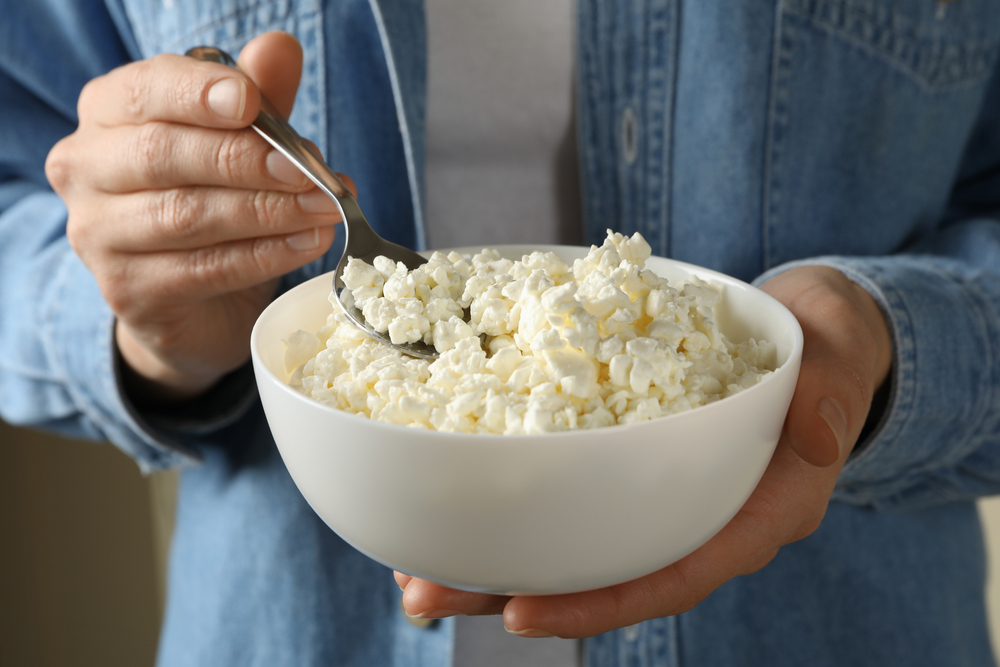Chronic inflammation is a condition linked to a wide range of health issues including heart disease, arthritis, diabetes, and autoimmune disorders. While inflammation is a natural immune response, when it becomes persistent, it can damage tissues and contribute to long-term illness. Diet plays a crucial role in either fueling or reducing inflammation in the body.
Dairy products, especially cheese, often get a bad reputation when it comes to inflammation. However, not all cheese contributes to inflammatory conditions. Some types of cheese contain nutrients like probiotics, omega-3 fatty acids, and antioxidants that can actually help manage inflammation. When chosen carefully and eaten in moderation, certain cheeses can support a healthy, anti-inflammatory diet.
Here are nine of the best cheeses to eat if you are dealing with chronic inflammation.
1. Feta
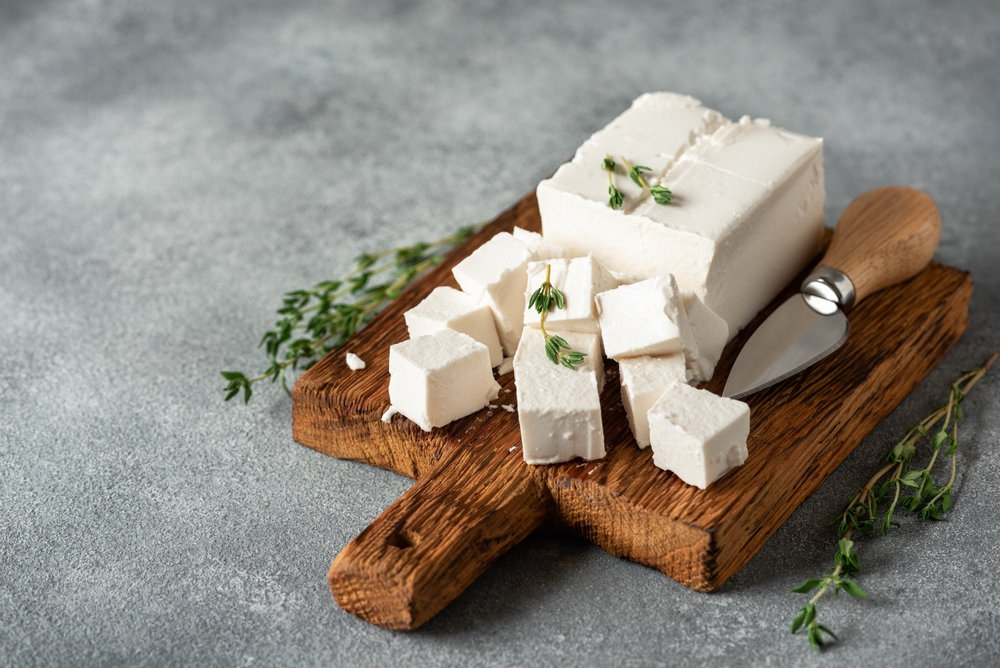
Feta cheese, made traditionally from sheep’s milk or a blend of sheep’s and goat’s milk, is a Mediterranean staple known for its tangy flavor and crumbly texture. What makes feta a good option for managing inflammation is its nutrient profile. Sheep and goat milk contain more medium-chain fatty acids than cow’s milk, which are easier to digest and may be less inflammatory.
Feta is also a fermented cheese, meaning it contains probiotics. These beneficial bacteria help support gut health, which is strongly linked to the body’s inflammatory response. A healthy gut microbiome can help reduce overall inflammation levels.
Read More: Refrigerating These 4 Foods Might Do More Harm Than Good
2. Goat Cheese

Goat cheese, also called chèvre, is rich in nutrients and easier to digest than many cow’s milk cheeses. It has smaller fat globules and contains less lactose, which makes it a suitable option for people who are sensitive to dairy or experience digestive issues that can trigger inflammation.
Goat cheese contains the A2 casein protein, which some studies suggest is less inflammatory than the A1 casein found in most cow’s milk. It also provides zinc and selenium, both of which are important for immune regulation and reducing oxidative stress.
3. Parmesan
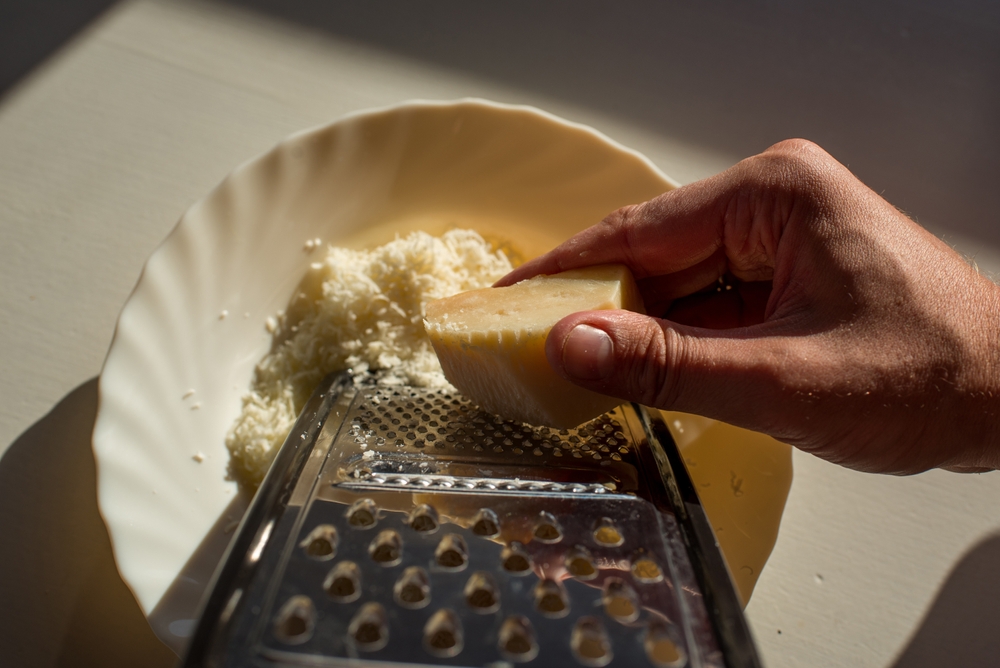
Parmesan is a hard, aged cheese that originates from Italy. The long aging process breaks down the lactose and proteins, making Parmesan easier to digest. This can reduce the risk of inflammatory reactions in people with dairy sensitivities.
Parmesan is also high in calcium and phosphorus, which are essential for bone health, especially in people with chronic inflammation that affects joints and bones. Additionally, it is a fermented cheese, offering probiotic benefits to support gut health.
4. Swiss Cheese

Swiss cheese, known for its characteristic holes, is a mild, semi-hard cheese that can be part of an anti-inflammatory diet. It contains a good amount of vitamin B12 and calcium, both of which support nervous system function and bone health.
What makes Swiss cheese a standout for reducing inflammation is that it often contains fewer additives and less sodium compared to more processed cheeses. Some varieties are fermented, which can provide beneficial probiotics that help support the immune system.
5. Cottage Cheese
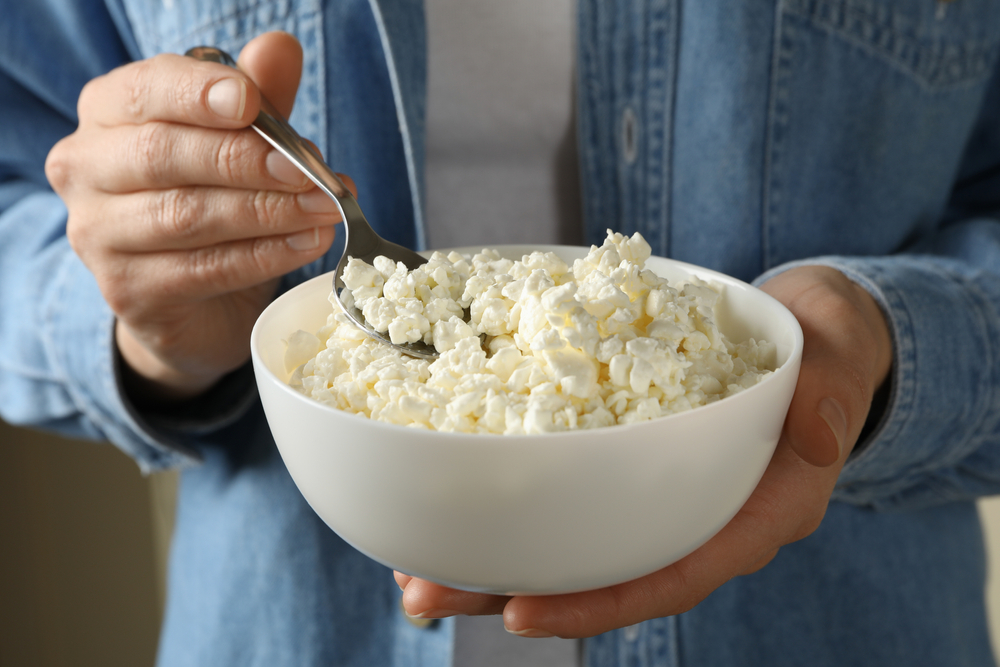
Cottage cheese is a fresh cheese made from curds and is high in protein while being relatively low in fat and sodium, especially if you choose low-sodium varieties. It contains casein, a slow-digesting protein that helps with muscle repair and may reduce inflammation when consumed in balance with other nutrients.
Cottage cheese also offers selenium and vitamin B12, both of which are involved in reducing oxidative stress in the body. While it is not aged or fermented like some other cheeses, its simple ingredient profile and low processing make it a cleaner choice for those aiming to manage chronic inflammation.
6. Ricotta
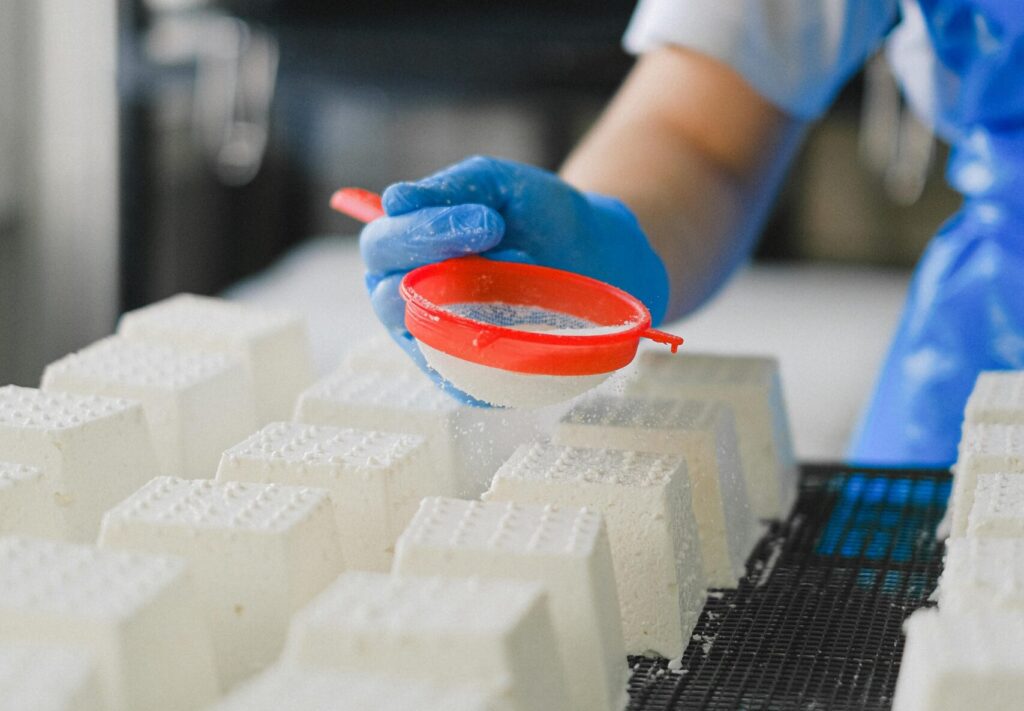
Ricotta is a creamy, mild cheese traditionally made from the whey left over during the cheese-making process. It contains a mix of whey proteins, which are easier to digest and less inflammatory than some other dairy proteins. Whey protein has also been shown to have antioxidant effects, helping to lower inflammation markers in the body.
Ricotta is also high in calcium and phosphorus, and because it is made from milk proteins in their most basic form, it can be a good option for those who find aged cheeses too rich or irritating to their systems.
7. Mozzarella
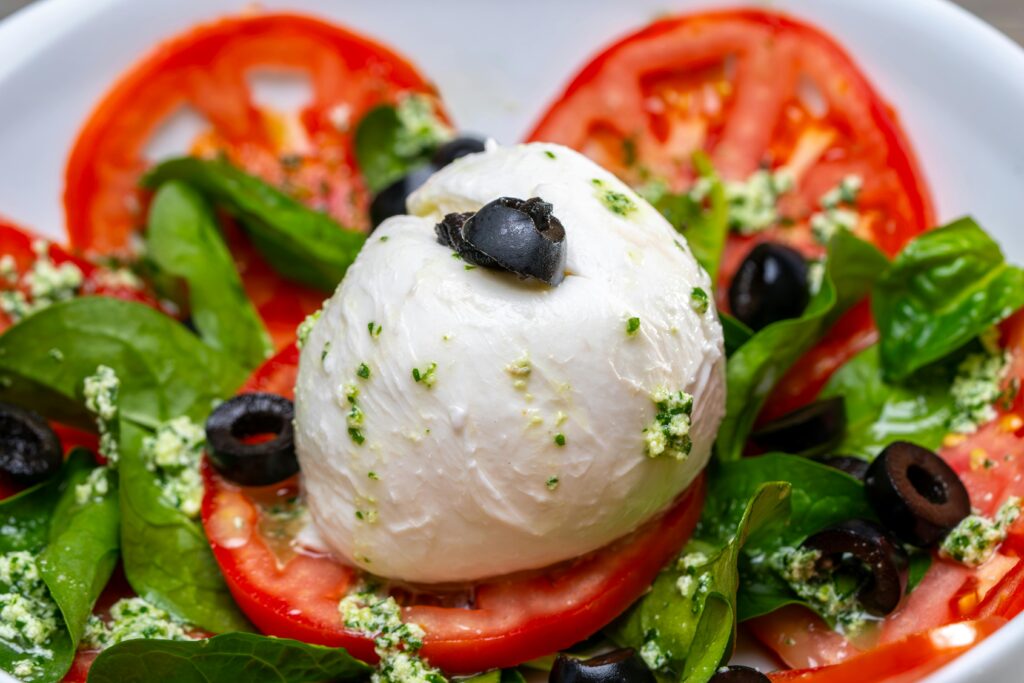
Mozzarella is one of the most popular cheeses in the world and also one of the better choices when it comes to inflammation. Fresh mozzarella, in particular, is made from water buffalo or cow’s milk and is usually consumed unaged. This makes it lower in sodium and easier to digest than aged cheeses.
Mozzarella is often made with live cultures, which provide probiotics that promote healthy gut bacteria. Since the gut is a central part of the immune system, maintaining its health is vital in controlling inflammation throughout the body.
Read More: Fast-Food Workers Reveal the 27 Worst Things on the Menu
8. Blue Cheese
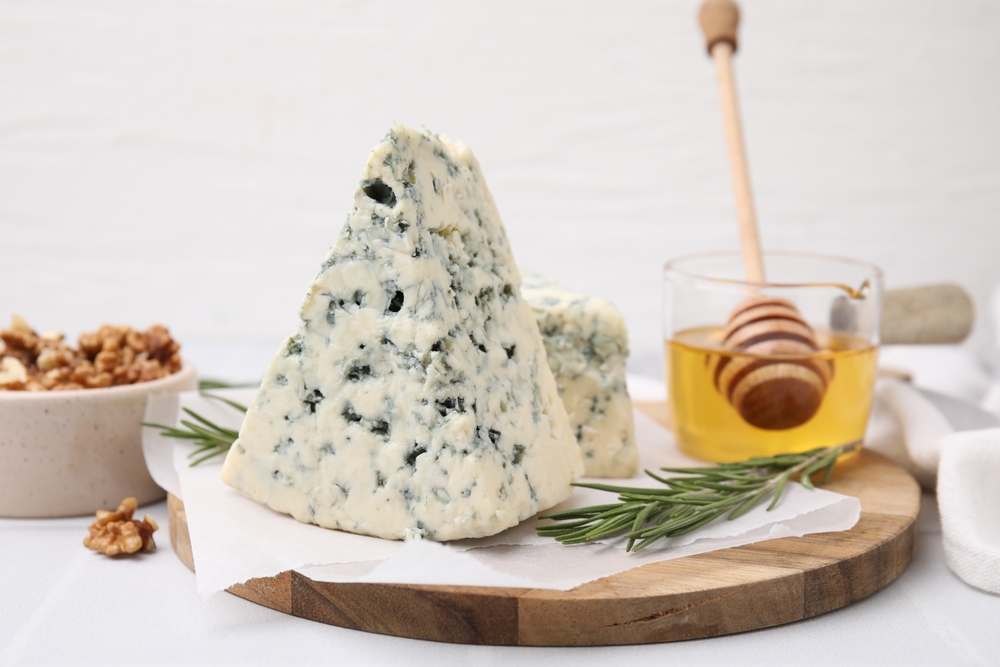
Blue cheese, such as Roquefort or Gorgonzola, is known for its bold flavor and blue-veined appearance. It is a mold-ripened cheese, and while the mold may seem like a concern, it is actually a source of beneficial bacteria. These bacteria help balance the gut microbiome and support immune health.
Blue cheese is also rich in calcium and has been shown to have anti-inflammatory properties when eaten in moderation. The fermentation process contributes to its potential to reduce inflammation, particularly in the digestive tract.
9. Camembert

Camembert is a soft, creamy cheese from France made from cow’s milk. Like blue cheese, it is a mold-ripened cheese and offers probiotic benefits due to its aging process. It also contains conjugated linoleic acid, or CLA, which is a fatty acid that may help reduce inflammation and improve immune function.
Camembert is high in vitamin B2 and B12, both of which support energy metabolism and neurological health. When consumed as part of a balanced diet, it can be a tasty and supportive option for individuals managing inflammation.
How to Include These Cheeses in Your Diet
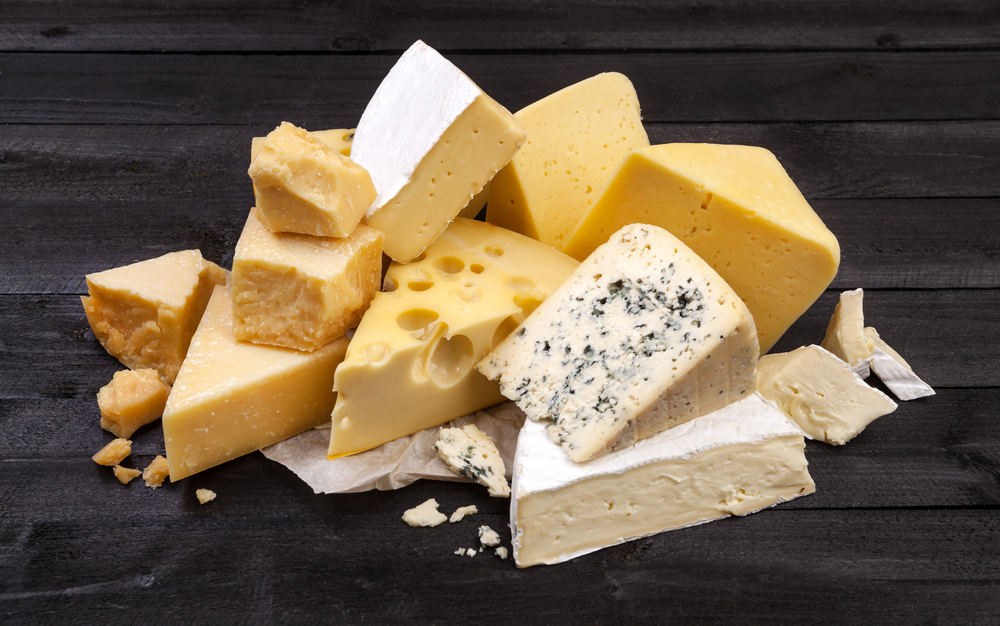
When adding cheese to your anti-inflammatory diet, portion control is essential. Cheese is calorie-dense and can be high in saturated fats, so it is best to consume in moderation. Aim for about one to two ounces per serving, and try to pair cheese with fiber-rich vegetables, whole grains, or healthy fats to create balanced meals.
Here are a few tips to help you include cheese without increasing inflammation:
- Choose organic or grass-fed cheeses when possible. They tend to have higher levels of omega-3 fatty acids and fewer additives.
- Avoid highly processed cheese products, including cheese spreads, slices wrapped in plastic, and products labeled as “cheese food.”
- Look for cheeses labeled as “live cultures” or “probiotic” to gain the digestive and immune benefits.
- Combine cheese with anti-inflammatory foods like leafy greens, berries, olive oil, and nuts to maximize benefits.
Conclusion

Cheese does not have to be off-limits if you are managing chronic inflammation. By choosing the right types of cheese and consuming them in moderation, you can enjoy their rich flavors and nutritional benefits without increasing inflammation. The best cheeses to eat if you have chronic inflammation are those that are less processed, contain probiotics, and offer easier-to-digest proteins and healthy fats.
Feta, goat cheese, Parmesan, Swiss, cottage cheese, ricotta, mozzarella, blue cheese, and Camembert are all excellent choices. Incorporate them mindfully into your meals to support your health and enjoy variety in your diet while keeping inflammation in check.
Disclaimer: This article was created with AI assistance and edited by a human for accuracy and clarity.
Disclaimer: This information is not intended to be a substitute for professional medical advice, diagnosis or treatment and is for information only. Always seek the advice of your physician or another qualified health provider with any questions about your medical condition and/or current medication. Do not disregard professional medical advice or delay seeking advice or treatment because of something you have read here.
